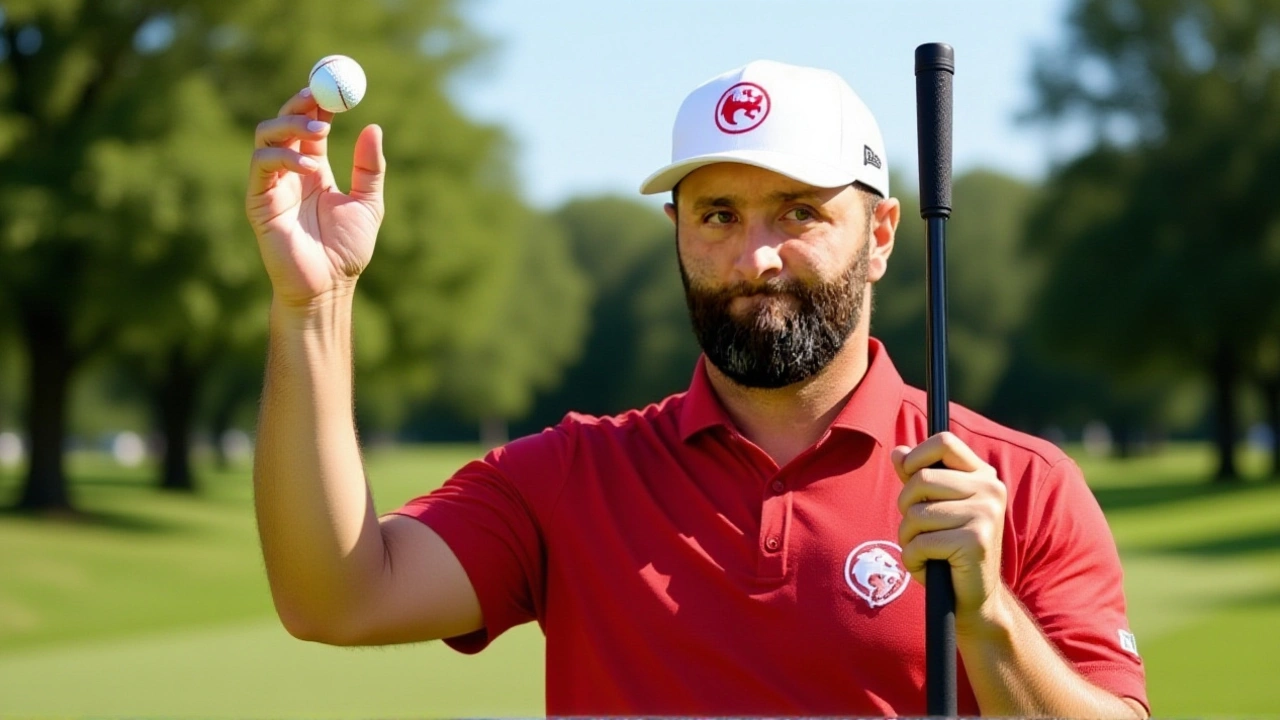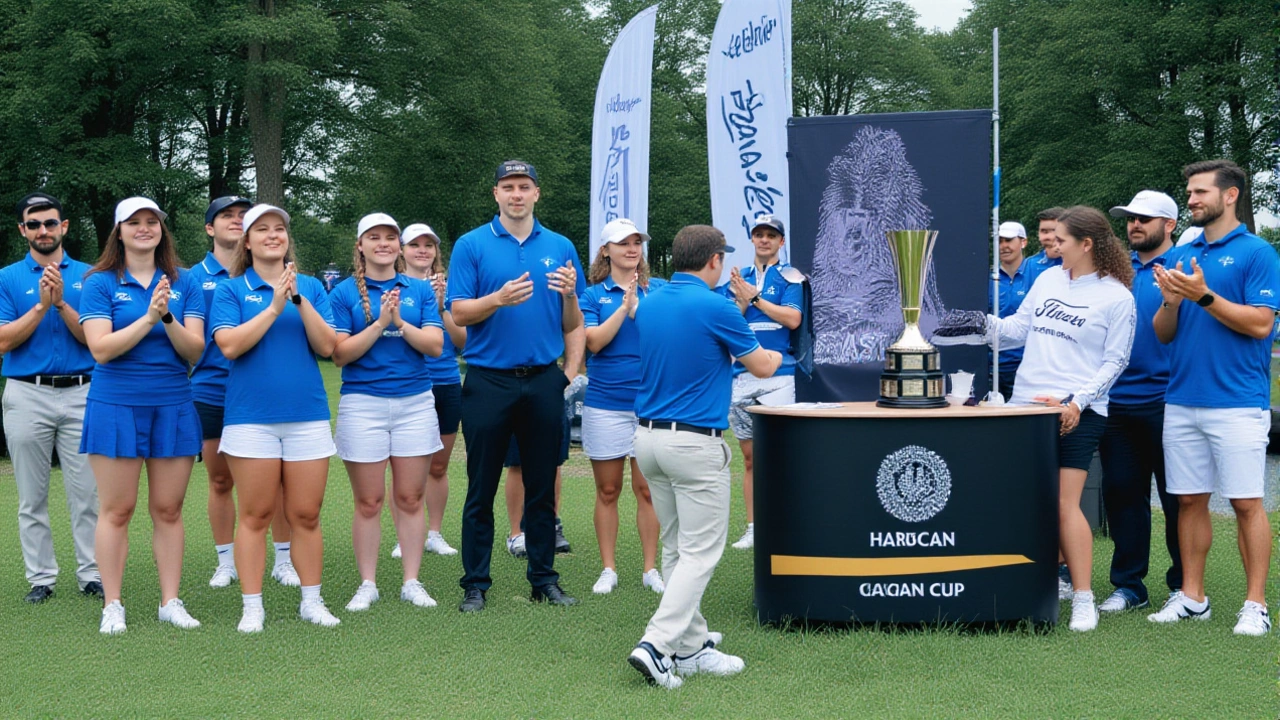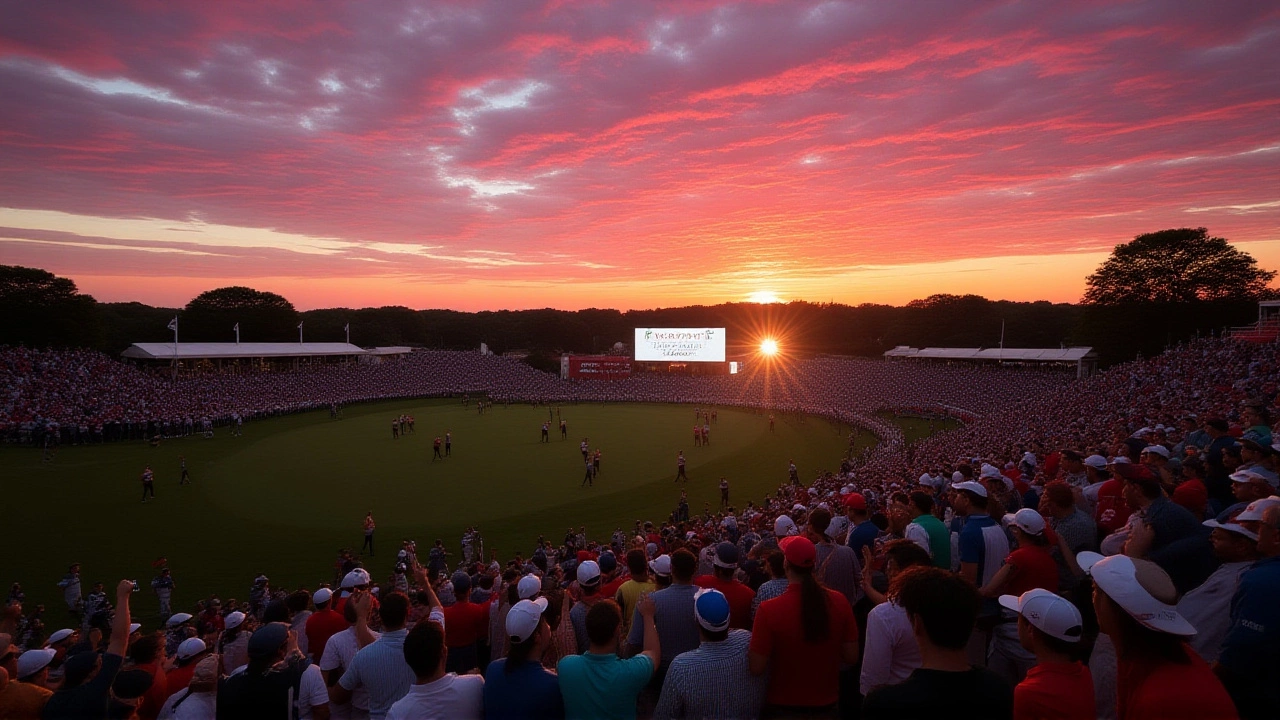When Keegan Bradley, U.S. Ryder Cup captain, announced the Saturday morning foursomes line‑up, a palpable buzz rippled through the clubhouse at Bethpage State Park's famed Black Course. The match‑play showdown, part of the 45th Ryder CupFarmingdale, New York, stakes a massive swing in momentum for the United States, which trailed Europe 5.5‑2.5 after Friday’s opening day.
Europe, under Luke Donald, captain of the European side, entered Saturday with a commanding lead, yet the early‑morning foursomes—four head‑to‑head matches beginning at 7:10 a.m. ET—offered the Americans a chance to claw back. The drama unfolded on a course known for its brutal rough and unforgiving greens, and the 7:10 start added a fresh layer of pressure: tired legs, chill morning air, and the weight of a three‑point deficit.
Background and stakes
The Ryder Cup, held biennially, pits the United States against a combined European team in a format that blends individual brilliance with team chemistry. Historically, the event swings like a pendulum—dominant stretches for each side are punctuated by sudden reversals. Bethpage Black last hosted the competition in 2016, a year the U.S. reclaimed the cup after a 13‑year European run. This backdrop makes the 2025 edition feel like a reunion with a familiar challenge.
Friday’s four‑ball and foursomes sessions saw Europe steamroll the hosts, winning the first three points and halting the U.S. at 2‑2 in four‑ball before pulling ahead in the morning foursomes. The 5.5‑2.5 cushion means the United States must secure at least four points from the next eight matches to keep the tie alive—a daunting task even for a roster that includes world number one Scottie Scheffler and multiple major winners.
Saturday morning foursomes line‑up
The captains stuck largely with Friday’s pairings, making only one tweak: Bryson DeChambeau switched from Justin Thomas to rookie Cameron Young. DeChambeau, who entered the tournament with a 0‑3‑0 record in Ryder Cup foursomes, was looking for redemption after a foreboding Friday morning loss.
- Match 1 (7:10 a.m.): DeChambeau/Young vs. Matt Fitzpatrick (England) & Ludvig Åberg (Sweden)
- Match 2 (7:26 a.m.): Harris English & Collin Morikawa vs. Rory McIlroy & Tommy Fleetwood
- Match 3 (7:42 a.m.): Patrick Cantlay & Xander Schauffele vs. Jon Rahm (Spain) & Tyrrell Hatton (England)
- Match 4 (7:58 a.m.): Russell Henley & Scottie Scheffler vs. Robert MacIntyre (Scotland) & Viktor Hovland (Norway)
Europe’s captain kept his Thursday‑Friday pairings intact, believing the chemistry that produced five birdies on four holes in Friday’s opening match would continue. Notably, Rasmus Højgaard, Sepp Straka, Justin Rose and Shane Lowry sat out the morning session, giving the more seasoned pairings the chance to lock in points.
First match turns the tide
Match 1 delivered the surprise the U.S. crowd had been yearning for. DeChambeau, wielding his trademark power off the tee, found the fairway in an unusually disciplined fashion. Young, fresh off a Friday afternoon win, kept the pressure on Åberg with a clutch 12‑foot birdie putt on the 10th. Fitzpatrick, normally a steady hand, missed a 9‑footer on the 12th, and Åberg’s attempt from the same hole slipped past the fringe.
At the 13th hole, DeChambeau’s driver punched a 315‑yard drive that settled just inside the fairway bunker—a rare placement for him. Young’s follow‑up 3‑iron landed safely, allowing them to claim the hole 4&2. The final score: 4&2 in favor of the United States, marking the first point for America on Saturday and arguably the most significant momentum swing of the competition.

Reactions from captains and players
“We knew Bryson could swing the ball far, but today he showed he can swing it smart,” Keegan Bradley said in the post‑match press area, his voice betraying a mix of relief and renewed optimism. “Cameron’s composure under pressure was why I paired them together.”
Luke Donald took a more measured tone: “Matt and Ludvig played a superb round Friday. Saturday’s early start can be unforgiving, and today they weren’t at their best. It’s still early, and we’ll adjust.”
DeChambeau, usually reserved, cracked a grin: “I’ve been in a hole too many times where I’ve felt the weight of the cup. It felt good to finally make a move for the team.” Young added, “Playing beside Bryson was a blast. We had each other’s backs, and that’s what matters in foursomes.”
Meanwhile, European stalwarts such as Jon Rahm and Viktor Hovland stayed focused on the matches still to come, emphasizing that a single loss does not dictate the weekend’s outcome.
What the results mean for the weekend
The early win narrows the gap to 5.5‑3.5, but the United States still faces a mountain of points. With four more sessions—two foursomes, two four‑ball, and a final singles day—there’s ample time for a swing. Analysts point out that the U.S. needs to win at least three of the remaining six matches on Saturday alone to keep the tie alive.
Statistically, the U.S. has a 38 % win rate in Ryder Cup foursomes when trailing after day one, according to a 2022 Golf Digest study. That historical edge, combined with the newfound confidence stemming from the DeChambeau‑Young victory, gives Bradley a strategic lever.
For Europe, the lesson is clear: early starts can expose thin margins, especially on a course where the rough can swallow a ball whole. Donald is expected to shuffle pairings for the afternoon four‑ball, possibly re‑uniting Fitzpatrick with Hovland, who posted a 3‑under‑par round in the practice rounds.
Looking ahead
Saturday’s afternoon session will feature the same four pairings in the four‑ball format, where players can swing more aggressively. If the U.S. can steal another point or two, the pressure will flip back onto the Europeans. The singles day on Monday—16 matches per side—will be decisive, but the trajectory set today will heavily influence confidence levels.
All eyes will be on the iconic 18th green, where past Ryder Cups have seen heroes rise and legends fall. For now, the narrative has shifted: the United States, once down by three points, has tasted a win and may just ride that wave into the afternoon.

Frequently Asked Questions
How does the Saturday morning win affect the United States’ chances?
The 4&2 victory narrows Europe’s lead to 5.5‑3.5, meaning the U.S. needs three of the next six points to stay tied. Historically, teams that win the first morning foursome after trailing have a modest edge in mounting a comeback, so the momentum boost is significant.
Why did Keegan Bradley change Bryson DeChambeau’s partner?
Bradley felt DeChambeau needed a partner with fresh energy after a 0‑3‑0 foursomes record. Cameron Young had just secured a win in Friday’s four‑ball, showing steady ball‑striking and calm nerves—qualities Bradley believed would complement DeChambeau’s power.
What makes Bethpage Black such a challenging venue?
Bethpage Black’s narrow fairways, deep rough, and lightning‑quick greens have earned it a reputation as one of the toughest courses in major championship history. The early morning tee times add cool temperatures and slower greens, forcing players to adjust club selection and putting strokes.
Which players are sitting out the Saturday morning session?
For the U.S., Justin Thomas, Sam Burns, J.T. Poston and Ben Griffin are not in the morning foursomes. Europe leaves out Rasmus Højgaard, Sepp Straka, Justin Rose and Shane Lowry for the same period.
What are the key matchups to watch on Saturday afternoon?
The afternoon four‑ball will pit the DeChambeau‑Young duo against the seasoned Fitzpatrick‑Åberg pair again, and the Scheffler‑Henley team will test the resilience of MacIntyre‑Hovland. Those pairings will likely determine whether the U.S. can keep the fight alive heading into the final day.
